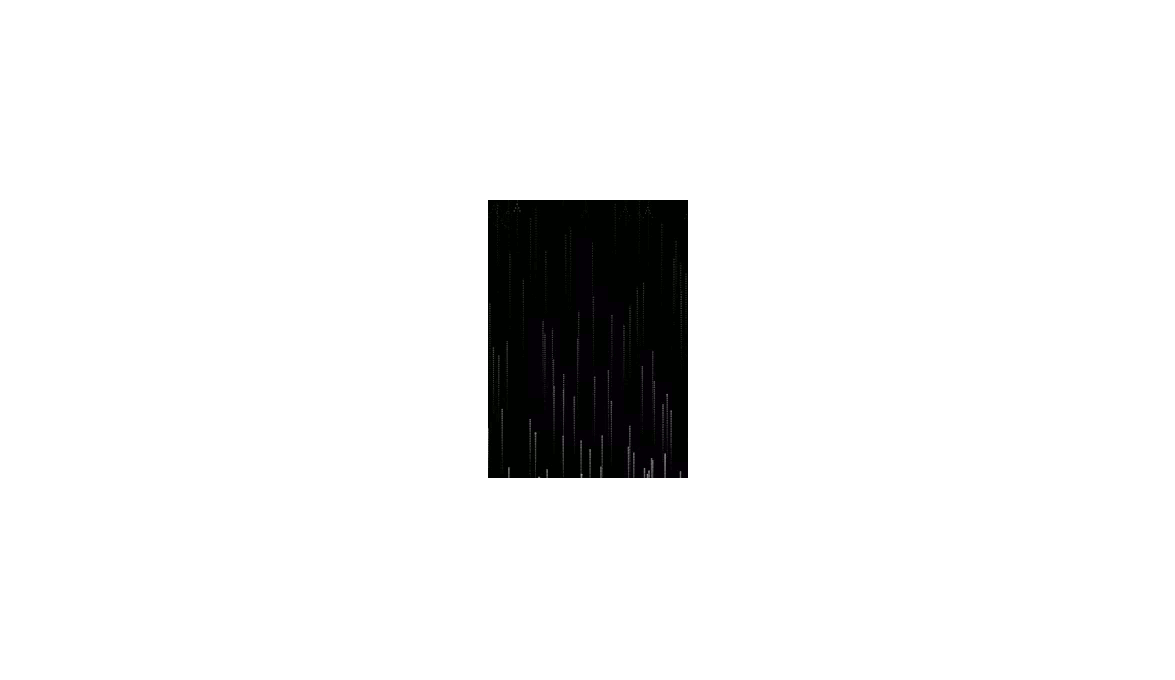In the age of authoritarianism, there is a battle of narratives. It is necessary to say clearly what is but not more simply than necessary. As the political right creates a front, the resistance of the many different is formed. Slow, subtle, unpredictable, complex, like the invisible processes of nature, life resists destruction. Nature is not an aesthetic ornament but the ultimate instance of truth. If you want to assert yourself in it, you have to face yourself in it—and you will be changed. Or not. Nature is endless, relentless and indifferent, that makes it fascinating and frightening.
Beginning with the first sentence of George Orwell’s novel 1984—“It was a bright cold day in April, and the clocks were striking thirteen”—a text of literary density unfolds and a stream of consciousness is set in motion. It moves from precise scientific definitions of natural phenomena to the distortions born of conspiracy narratives, presented as alternative truths, weaving strange grid-like patterns across the sky. One of the greatest enemies of clear language is insincerity. Narcissistic hubris and a collective spirit of slogans cloud comprehension and insight, pushing the world into vagueness. In the mire of emotions, a mythical past is re-enacted, burden with unfreedom and unreal promises about the future.
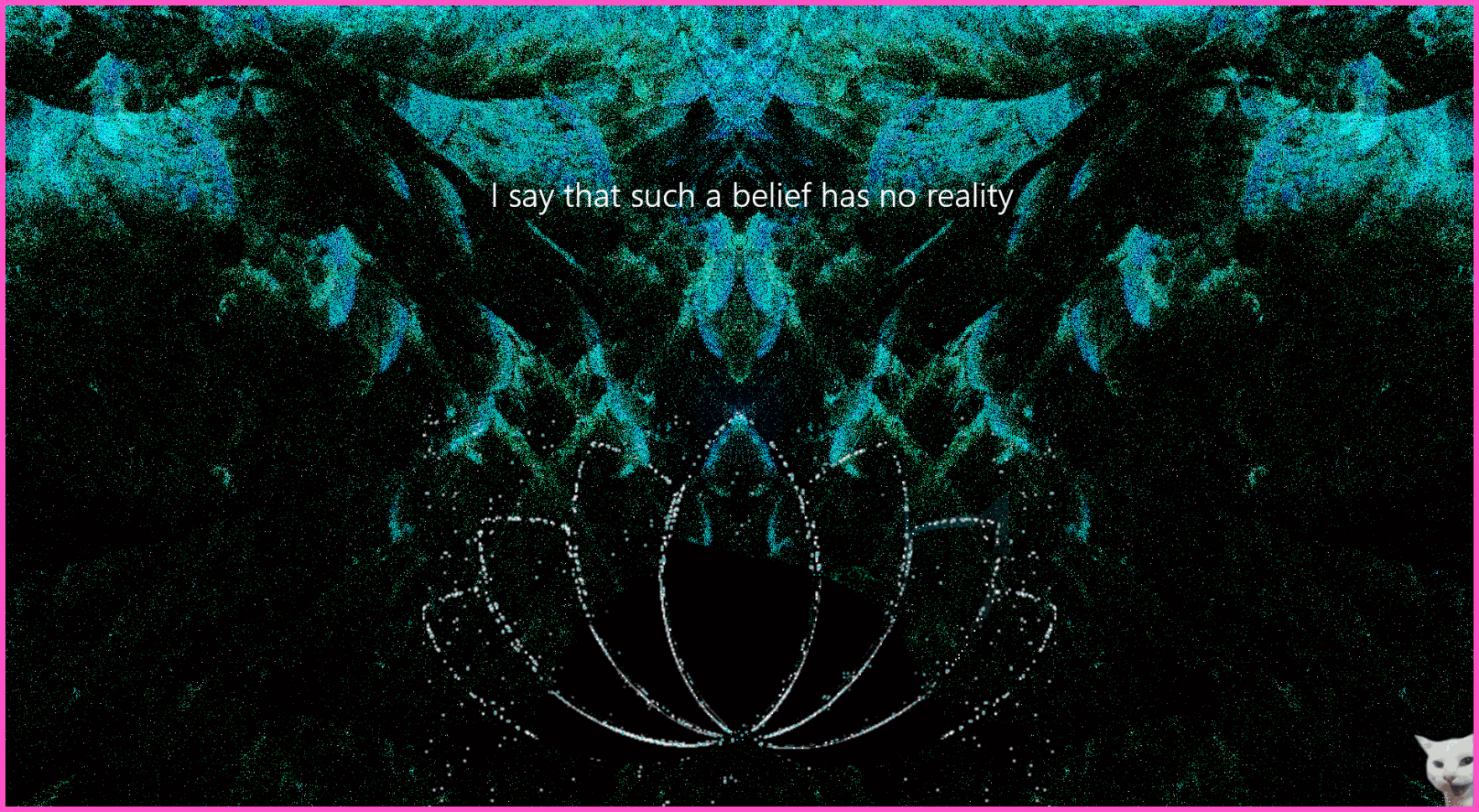
In contrast to all this, nature exists. The vegetation of the lotus plant, in the history of culture, stands as a symbol for purity and clarity of consciousness. Born of mud, the flower develops a white blossom which in its symbolism embodies the pure mind.
A water world of mud, flowers, UV-light, sound and text are elements of the scenic storytelling – locked-in, nearly hidden and enclosed in the water chamber staged as a sanatorium, as an oasis of purification from darkness, as a poetic-occult laboratory for restoring truth.
Fog is ground-level aerosol consisting of water droplets,
which reduces visibility to less than a thousand meters.
“As-if something were needed in front of us to prevent us from seeing.
The problem lies behind the retina. The problem lies in the head.
We can’t see that we don’t see. The whole brain is a blind spot.
Cortical blindness.
Cortical blind people look, but they don’t see. Mene, Mene, Tekel, Upharsin = Menetekel.
White and sunlit and indelible. Don’t look up. The gaze totally reflected.
Father Morgana. Your sun at its nadir. Don’t believe the hype. For it is written:
White and sunlit and indelible.
Only sheep need a leader.
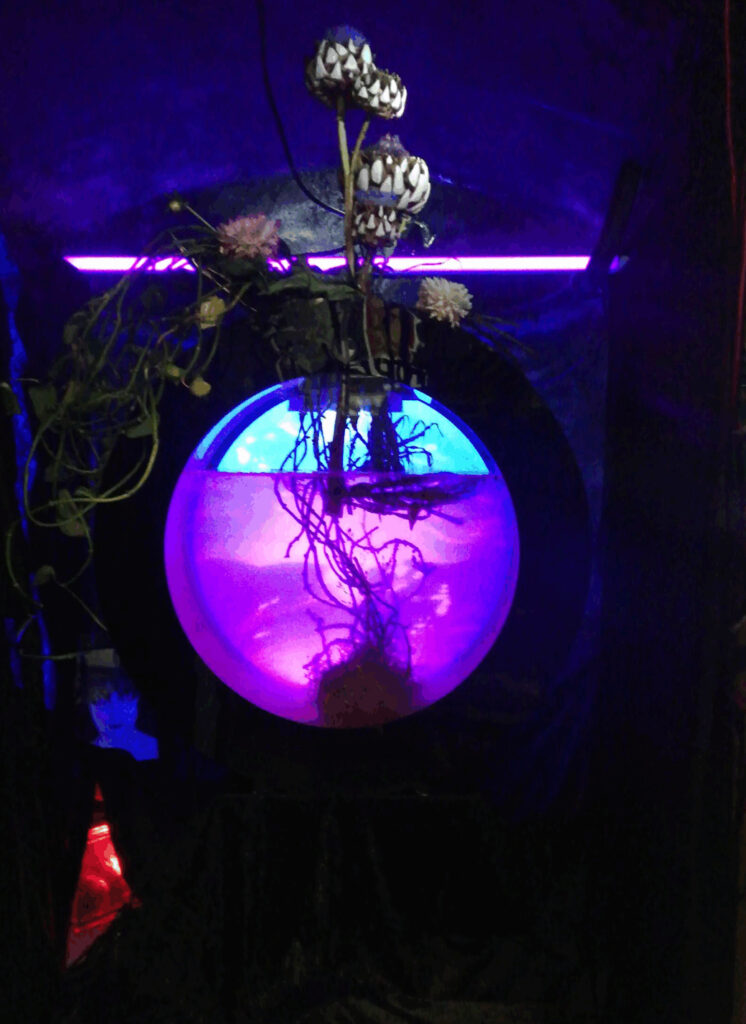
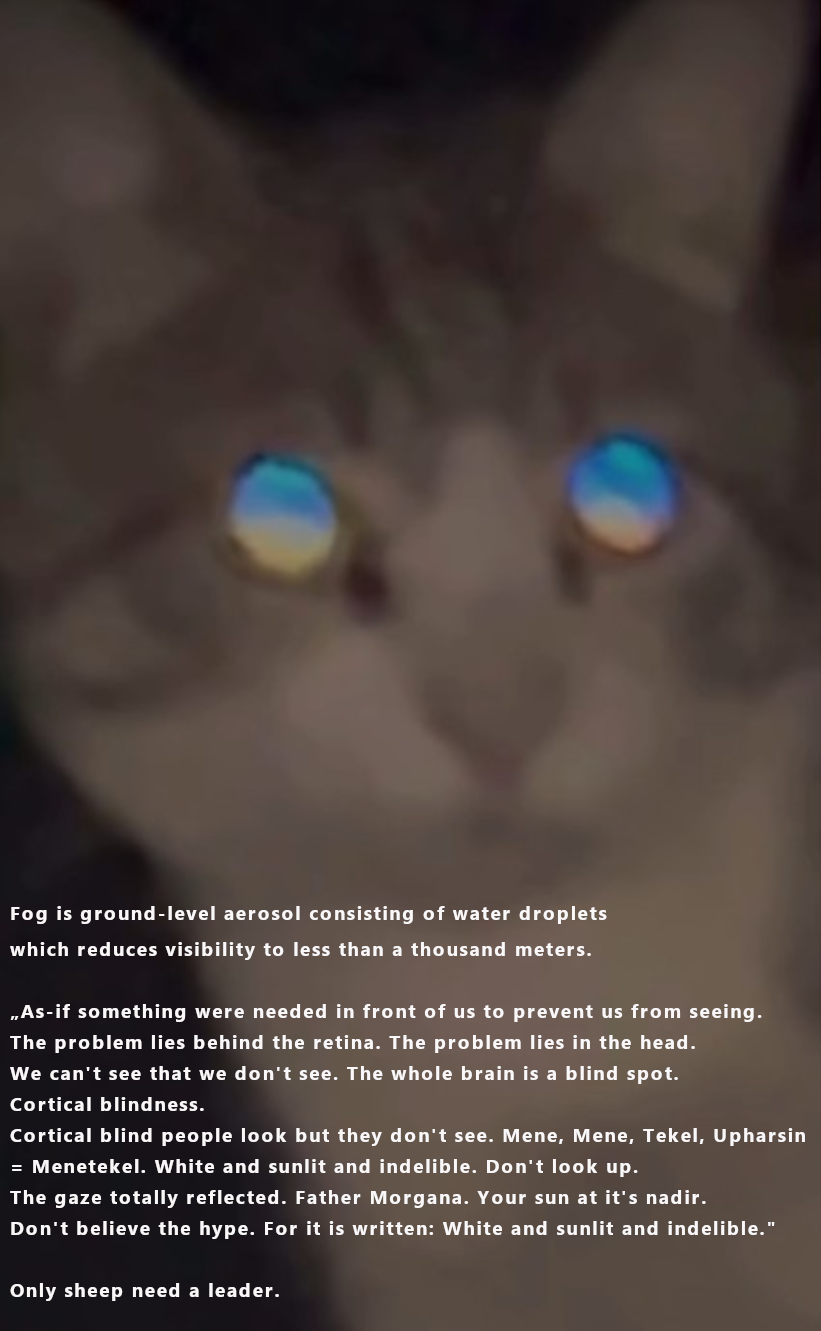
Clarification [Black Lotus XIII] part of stwst84x11 media art festival, September 1st-7th 2025
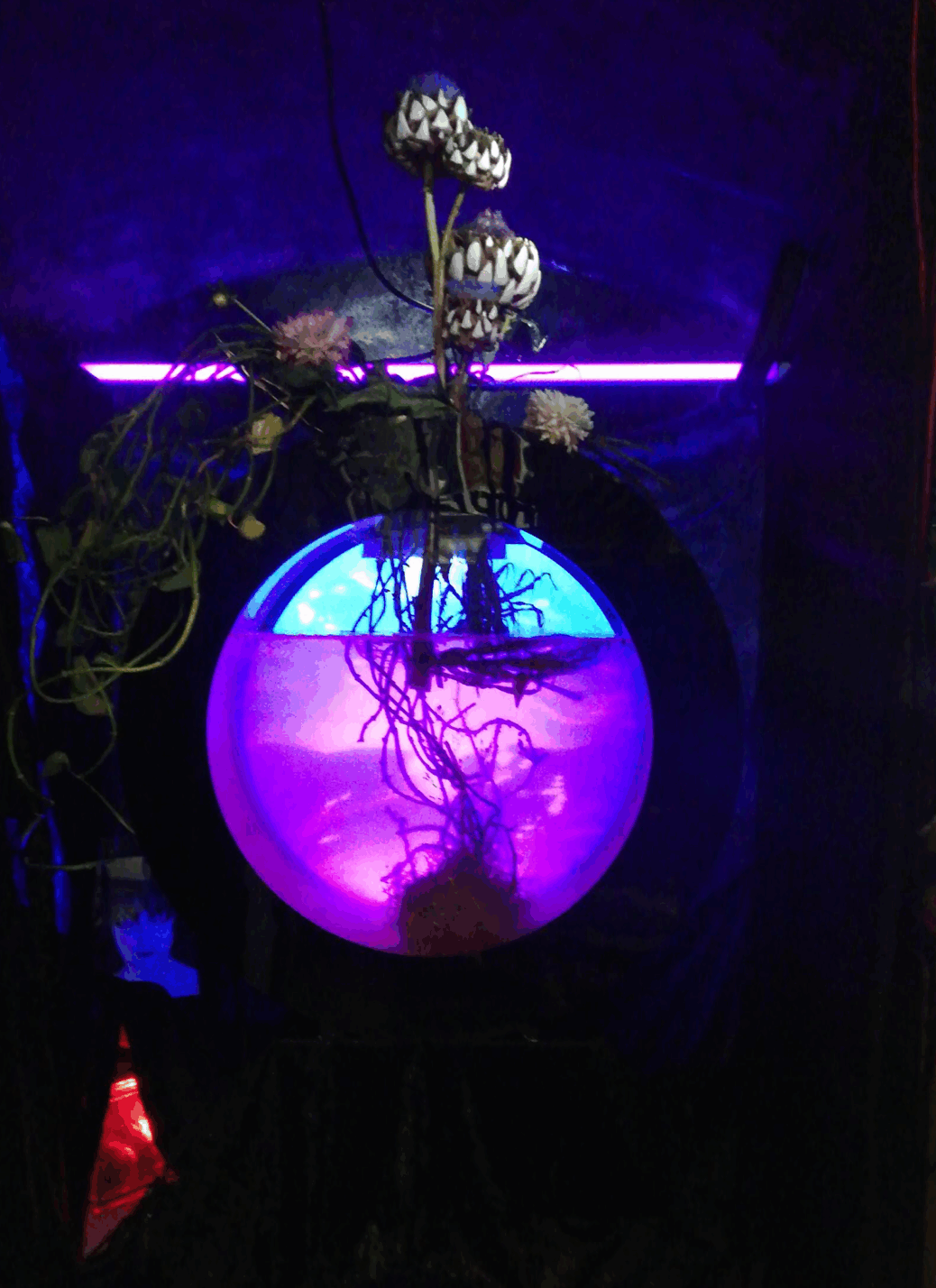
/g/o/d/ . Clarification [Black Lotus XIII] . Scenic Story-Telling / Water Chamber-Installation
stwst entrance area. water chamber. part of clouded exhibition: open throuhgout.
Credits and special thx: MC & Gregor Sulzbacher
Orwells Flowers
In the age of authoritarianism, there is a battle of narratives. It is necessary to say clearly what is but not more simply than necessary. As the political right creates a front, the resistance of the many different and unseen oppressed is formed. Analogous to “Orwell’s Roses” by Rebecca Solnit, a concluding essay in a collection of nine essays reflecting on fascism and authoritarianism is created based on the scenic storytelling “Clarification [Black Lotus XIII]”.
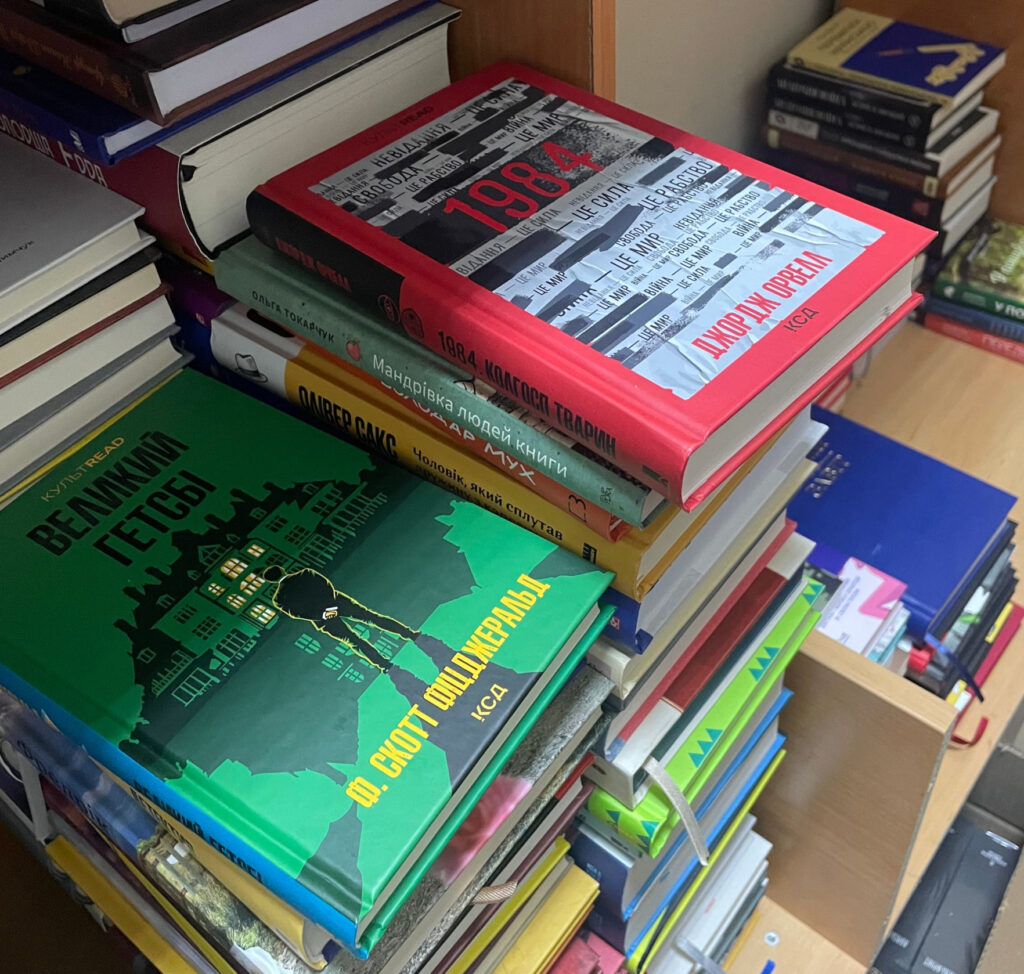
1984 and other Books on their way to soldiers on the front, Kultur’nyi Desant, Kyiv, september 11, 2025 / Timothy Snyder
